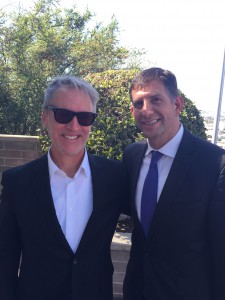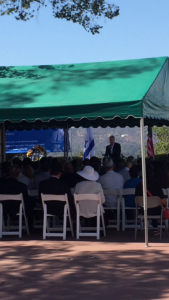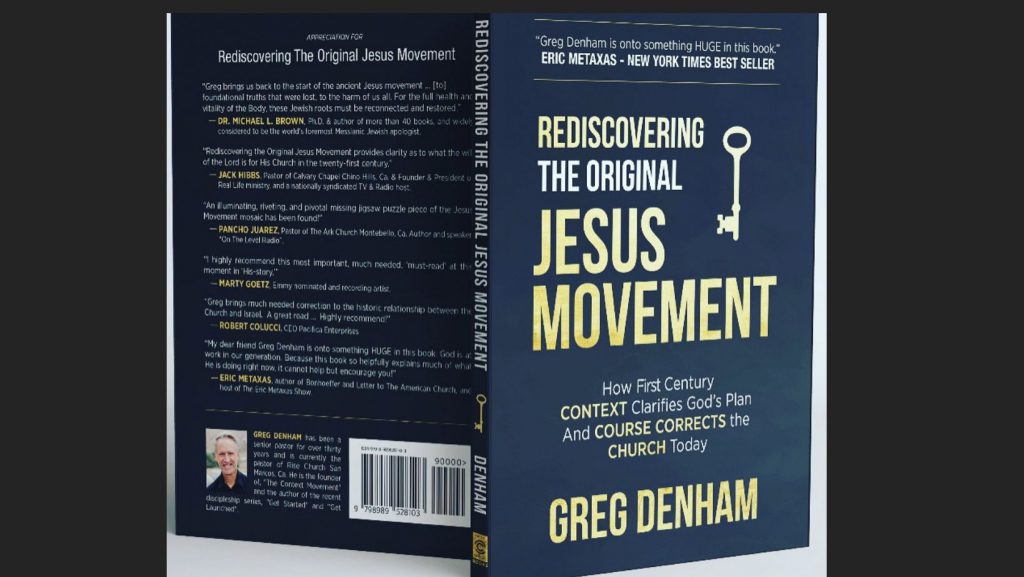
Rediscovering The Original Jesus Movement (How 1st Century Context Clarifies God’s Plan & Course Corrects The Church Today)
Written by gregdenham on December 12th, 2023
The Context Of Communion Matters (Course-Correcting-History!)
Written by gregdenham on July 12th, 2020Communion has been called “The Grand Central Station of the Christian Faith”. It’s commonly known as “the Lord’s Supper” or “Eucharist”. It is when unleavened matzah bread striped and pierced symbolic of the Lord’s sinless body is broken and eaten – and a cup is received symbolic as Jesus said of “My blood of the new covenant, which is shed for many for the remission of sins.” (Matt. 26:28)
In church history it has been identified both as an ordinance that Jesus called to be repeated on an ongoing basis (i.e. “do this in remembrance of Me” Luke 22:19), as well as a sacrament which carries the idea of a special blessing, sanctification and proclamation of the Lord’s return!
But context of communion matters! Context is essential to provide clarity to this “Grand Central Station of the Christian Faith” especially because communion is the central act of worship in the church. But it just so happens that the context of communion is more often what is missing.
When Jesus for example said, “Do this in remembrance of me …” What is the “this” in context? At the time the disciples were having a ceremonial meal in the evening of the beginning of Passover on the Biblical Calendar of Nisan 14. The meal was a kind of reenactment of the Passover story that commemorated when the children of Israel were delivered out of enslavement in Egypt. The story of when God’s judgment passed over homes in Egypt marked by lambs blood. But certainly the “this” was not merely an ambiguous “last supper” prior to the crucifixion as it is often referred to.
Earlier Jesus had said “with fervent desire I have desired to eat this Passover with you before I suffer …” Why the “fervent desire” that speaks of intense passion of body, soul and mind in the moment telling that Jesus is totally present. It would be in this context of a Passover Seder that Jesus would reveal the greatest revelation. He would break bread but not any ordinary bread. The Passover and Exodus is being remembered. The bread is unleavened. It is known as the “bread of affliction”. It has to be striped and pierced and holding it would remind you of the sobering cost of the price of redemption and new beginning. It is in this context that Jesus says, “This is My body which is given for you; do this in remembrance of Me.” Luke 22:20 identifies that then Jesus took a third cup in the Passover meal known as the “Cup of Redemption or deliverance” (that aligns with Paul’s description “He took the cup after supper”). The third Cup was filled with red color of the fruit of the vine that represented the Passover lamb. But in this context Jesus identified Himself as the ultimate Lamb of God sacrificed for our redemption saying, “This cup is the new covenant in My blood, which is shed for you.”
Jesus then said, “Assuredly, I say to you, I will no longer drink of the fruit of the vine until that day when I drink it new in the kingdom of God.” (Mark 12:25)” It was another way of saying that at His second coming when He would sit on the throne of David in Jerusalem to establish the Kingdom of God on planet earth: that the “Jesus and Passover connection” would continue. That God’s divine redemption plan would again be celebrated but this time in it’s completion!
The Context of communion reveals a day like no other. It is “the day of preparation for the Passover” (John 19:14) which was the Friday of Passover. This means the meal took place Thursday evening the beginning of Nisan 14, Passover. In the morning, the same day at 9:00am(in the Jewish reckoning still the fourteenth) Jesus would be on the Cross shedding His blood inaugurating the New Covenant as John the Baptist foresaw, “Behold the Lamb of God that takes away the sins of the world!” Or as Paul penned, “For indeed Christ, our Passover, was sacrificed for us.” (1 Cor. 5:7) You can see why it would be of no surprise that there are early church sources that report second-century churches in Paul’s region celebrated Passover and Messiah’s crucifixion on the fourteenth of Nisan. (See “Messiah and The Passover” Bock/Glaser, Kregel Publications chapter 6 “Passover and the Lord’s Supper” pg. 99-109 by Brian Crawford. Eusebius, Ecclesiastical History, 5.23 (Nicene and Post-Nicene Father, Series 2 1:241-42) and Polycrates’ letter to Victor in Eusebius, Ecclesiastical History, 5.24 (Nicene and Post-Nicene Father, Series 2 1:242-44). He identifies the Apostles Philip and John as the originators of the Passover observance in Asia Minor, and then identifies six others, including himself, who have retained that practice until Polycrates’ own day.”)
Context matters! We need to fight for it! To create the space for it in our thinking! A simple adjustment in our thinking regarding the context of the day. The context of the meal. The context that Jesus revealed how the new covenant would be inaugurated in His blood on the Cross will allow us to afresh experience the passion and purpose of the genius plan of the heavenly Father in His Son. It can even play a role in course-correcting history! Below are some examples of how context impacts our understanding of communion.
#1 The historical Passover in Egypt on Nisan 14 was a preview and prophecy of a greater Exodus from the enslavement of sin that would impact the entire world when Jesus would give His life on the Cross Nisan 14 the lamb of God who takes away the sins of the world.
#2 When Jesus said “Do THIS in remembrance of me …” He was linking the plan of the Heavenly Father in eternity past thru Israel and the Messiah of Israel into eternity future. As Paul said, “You proclaim the Lord’s death till He comes!” (1 Corinthians 11:26)
#3 The New Covenant of Jeremiah 31 that Jesus said He was inaugurating by His blood on the cross, was actually a covenant that God made with Israel from which the world is invited into thru Messiah. A Covenant that the Lord purposed that the church would find its roots. While Jesus focussed on the personal aspects of the New Covenant it also describes the future national salvation of Israel (Jer. 31:31-37). On this great future day God will take the Law from the stone tablets and write it on the hearts and minds of the children of Israel. The New Covenant that Jesus is offering to you and me now is not national but personal and is available to both Jews and Gentiles.
#4 The Context reveals that there was a terrible turn in church history when the Emperor Constantine at the council of Nicea 325 outlawed the celebration of the death, burial and resurrection of Jesus in the context which it took place on the Biblical calendar of Nisan 14, the day of historic Passover, and in so doing removing it from its Biblical foundation. Instead, he required all churches to observe Easter! Celebrating communion, therefore, in its context helps correct Constantine’s corruption!
#5 The Context of communion helps to equip the church in the work of evangelism to “provoke Jewish friends to jealousy”. It helps our Jewish friends see that the heart of faith in Jesus is rooted in the unfolding plan of the Lord God of Israel and that following Jesus the Messiah is not a “new religion!”
Check out www.TheContextMovement.com
Written by gregdenham on March 16th, 2020We just launched TheContextMovement.com website (still fine tuning!)
Hope you enjoy:)
Blessings,
Greg
The Vision
The Vision of “The Context Movement” is to impact a generation by rediscovering the Jesus movement in Jerusalem that identifies “The Context” in which the Gospel was first believed and proclaimed -the key to understanding “The Content” of God’s will -that determines “The Course” God intended for our lives and the Church.
The Mission
The Mission of the “The Context Movement” is to provide a hub for a coalition of leaders to serve, inspire and equip the church in accurate exegesis of Scripture, which serves as: the basis for expository preaching, evangelism, understanding the mission and course God intended for the church, and Gospel contextualization in the 21st century global community!
A Dream Team For Our “Friends Of Israel Weekend”
Written by gregdenham on March 3rd, 2020Great team for our “Friends of Israel Weekend!” at Rise Church San Marcos, Ca.
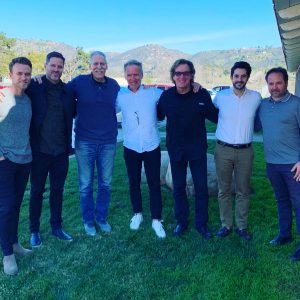
Left to right = Pete Denham, Ricky Jackson, Dr. Michael Brown, Greg Denham, Marty Goetz, Eitan Bar, Robert Colucci (Dr. Mitch Glaser missing:))
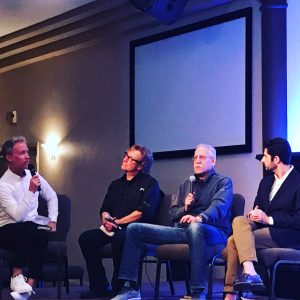
An Evening Celebrating “The Coming King!” at Rise Church w/ Ricky Jackson and Aaron Redfield
Written by gregdenham on October 3rd, 2019Savoring the incredible celebration of “The 2nd Coming of the King” (On “The Feast Of Trumpets!”) with our dear friend Ricky Jackson and the legend on drums Aaron Redfield!!
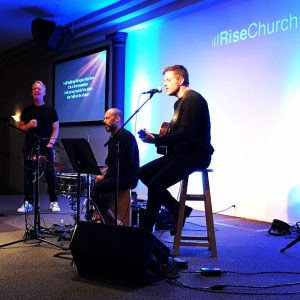
Some big ideas from the evening …
In the framework of the new beginning under the leadership of Nehemiah in Jerusalem: “The Feast of Trumpets” speaks of the successful coming out of the influence of BABYLON that is symbolic of all that opposes God! The reality is we’re all called to be in type that kind of remnant in our generation – a generation identified by some as- “digital Babylon!”. So, let us AWAKEN in the declaration that we’re not “Babylonians” but followers of the KING of Jerusalem who came after US and made us SAINTS (set us apart!) and who is coming again! And that the period between Trumpets and Atonement (known as the “days of awe”) be a time to open our hearts to the Spirit of God to search our lives and remove afresh any hindrance to intimacy with God (in the spirit of Paul’s instruction “Examine yourselves as to whether you are in the faith. Test yourselves. Do you not know yourselves, that Jesus Christ is in you?—unless indeed you are disqualified.”) And like on Trumpets, in Jerusalem years ago when the community came together as “One Man” (Neh. 8) – as followers of Jesus we commit to God’s Peace Plan in Christ who created “…in Himself one new man from the two, thus making peace ..”
30th Anniversary of Harvest Crusades w/ Greg Laurie Baptism Pirates Cove Corona Del Mar
Written by gregdenham on September 9th, 2019Hundreds baptized today at Pirates Cove after the 30th anniversary of the Harvest Crusade! A day overflowing with incredible stories of Jesus changing and healing lives! A monster blessing to be a part of!! Here baptizing with my friend Greg Laurie!
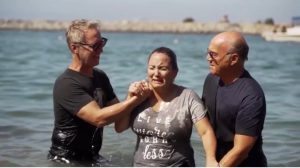
With Eric Metaxes NYTimes Best Selling Author
Written by gregdenham on August 29th, 2019I’ve been wanting to meet Eric for quit sometime. Soo appreciate: His Pen. His Voice. His Boldness. And his Faith in the Lord Jesus! Eric penned, “Martin Luther: The Man Who Rediscovered God and Changed the World” (claimed a New York Times Editor’s Pick in December 2017); “If You Can Keep It: The Forgotten Promise of American Liberty”; “Miracles: What They Are, Why They Happen, and How They Can Change Your Life” “Bonhoeffer: Pastor, Martyr, Prophet, Spy” I gave a message entitled “Jesus Changes Everything” majorly inspired by Eric’s book “Amazing Grace: William Wilberforce and the Heroic Campaign to end slavery!” You can find it at www.risesanmarcos.com under sermon messages.
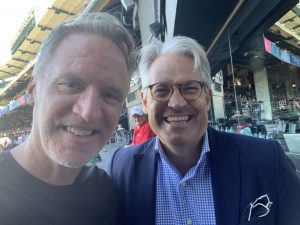
With the Israeli Consul General Celebrating The Life Of William Blackstone Called “Father Of Zionism” by Louis Brandies
Written by gregdenham on December 17th, 2018Reminiscing on this incredible day!
Sitting to my right the Consul General Sam Grundwerg, of the Israeli Consulate of Los Angeles. To my left, Rabbi Yitzchok Adlerstein, Director at the Simon Wiesenthal Center. And to Yitzhok’s left, the Ambassador of Korea and the President of Biola University.
All of us were given the unique opportunity to speak of the inspiring life of William Blackstone whose mobilization of Christian support for a Jewish national homeland as early as 1891, five years before the publication of Theodore Herzl’s The Jewish State in 1897, motivated Jewish businessman Nathan Straus and Supreme Court Justice Louis Brandies, leaders of the American Zionist movement, to call Blackstone the “Father of Zionism.”
